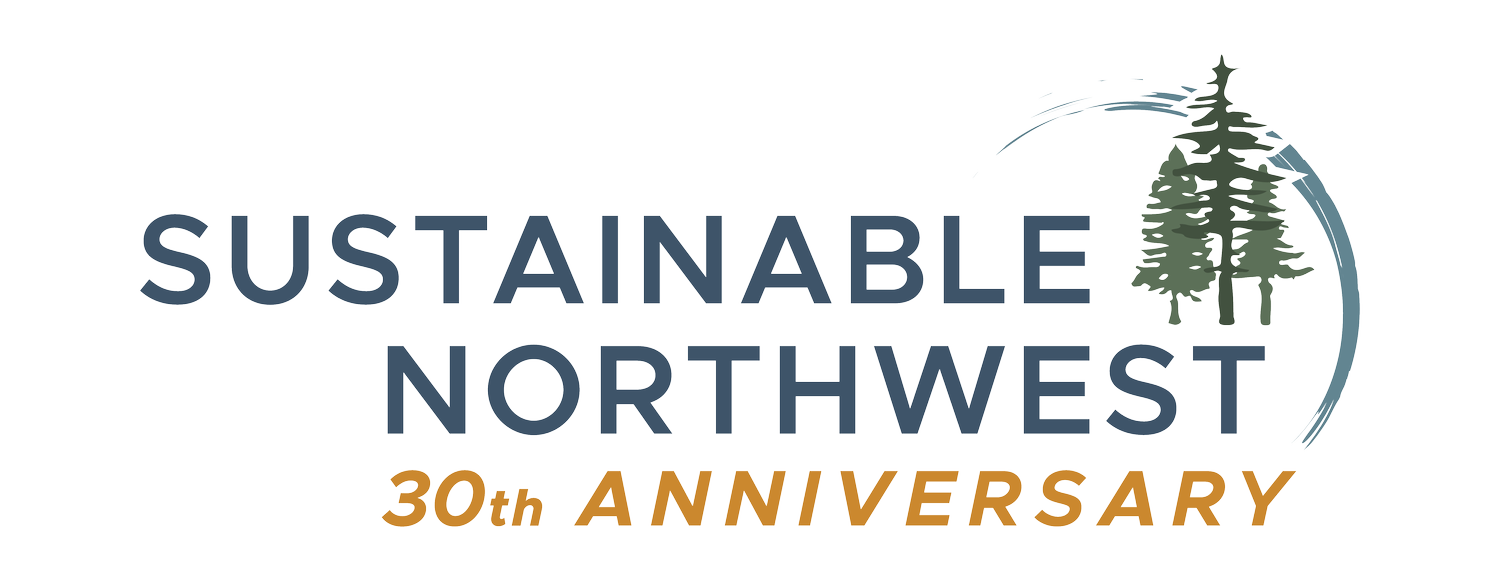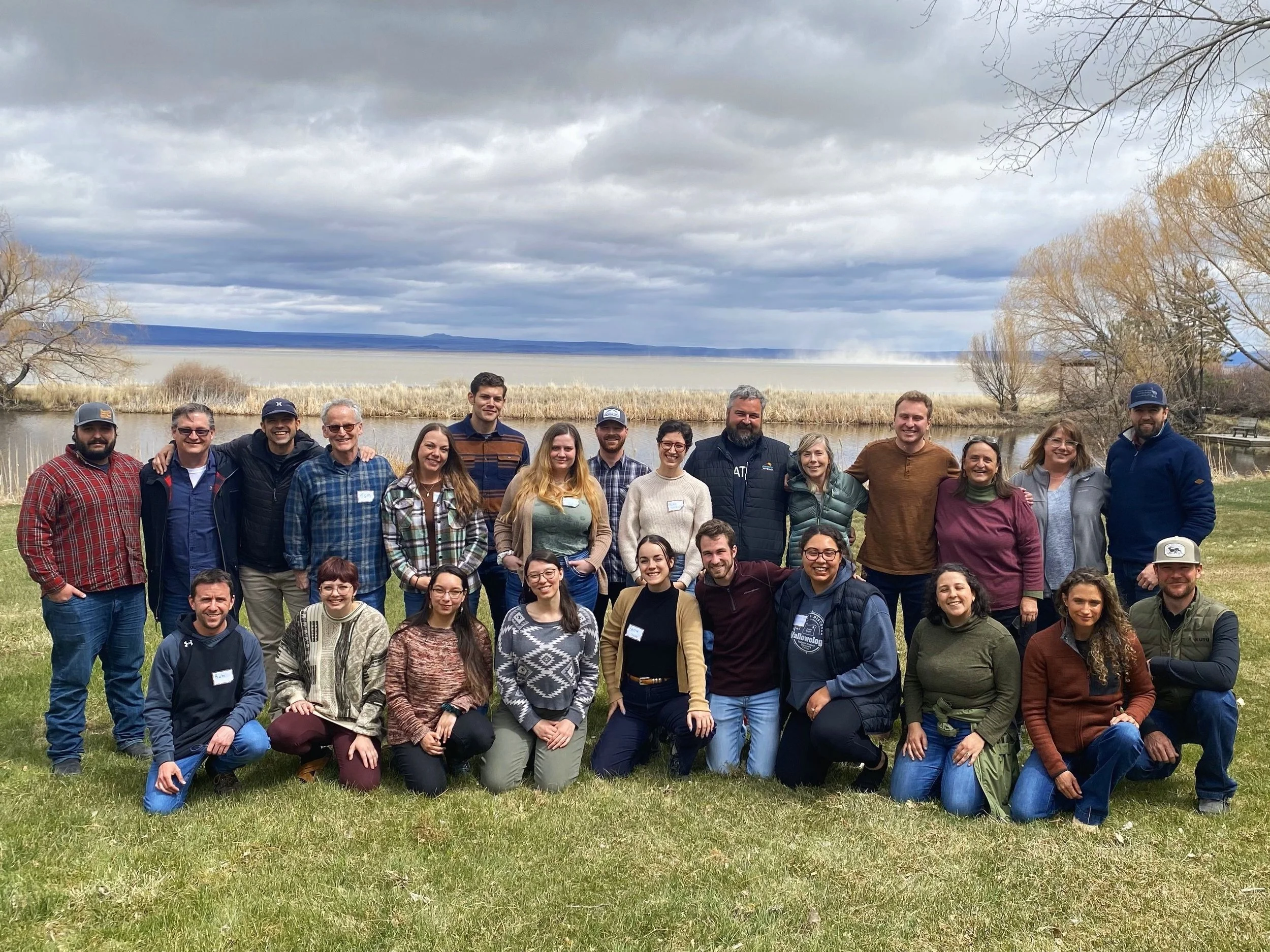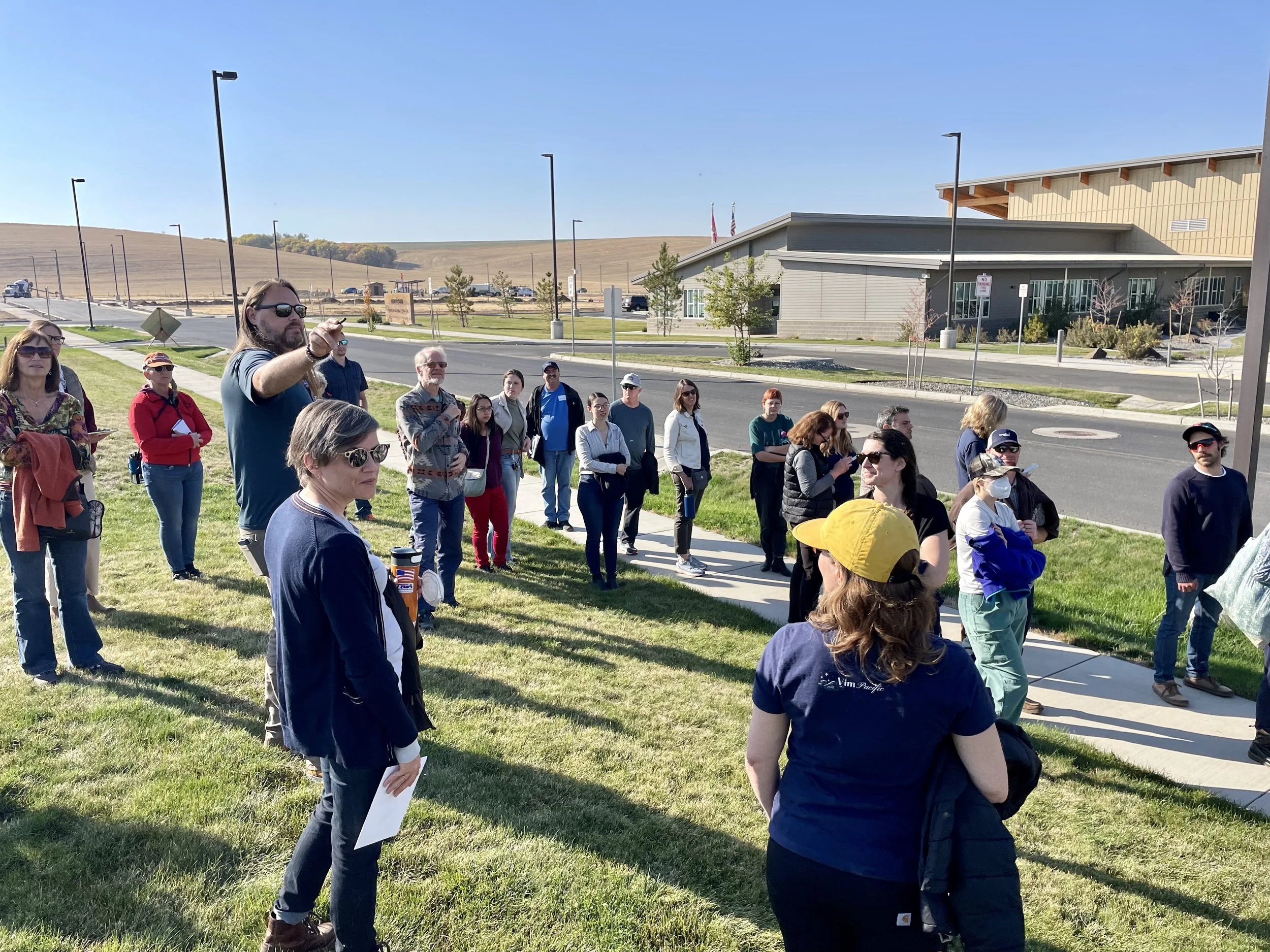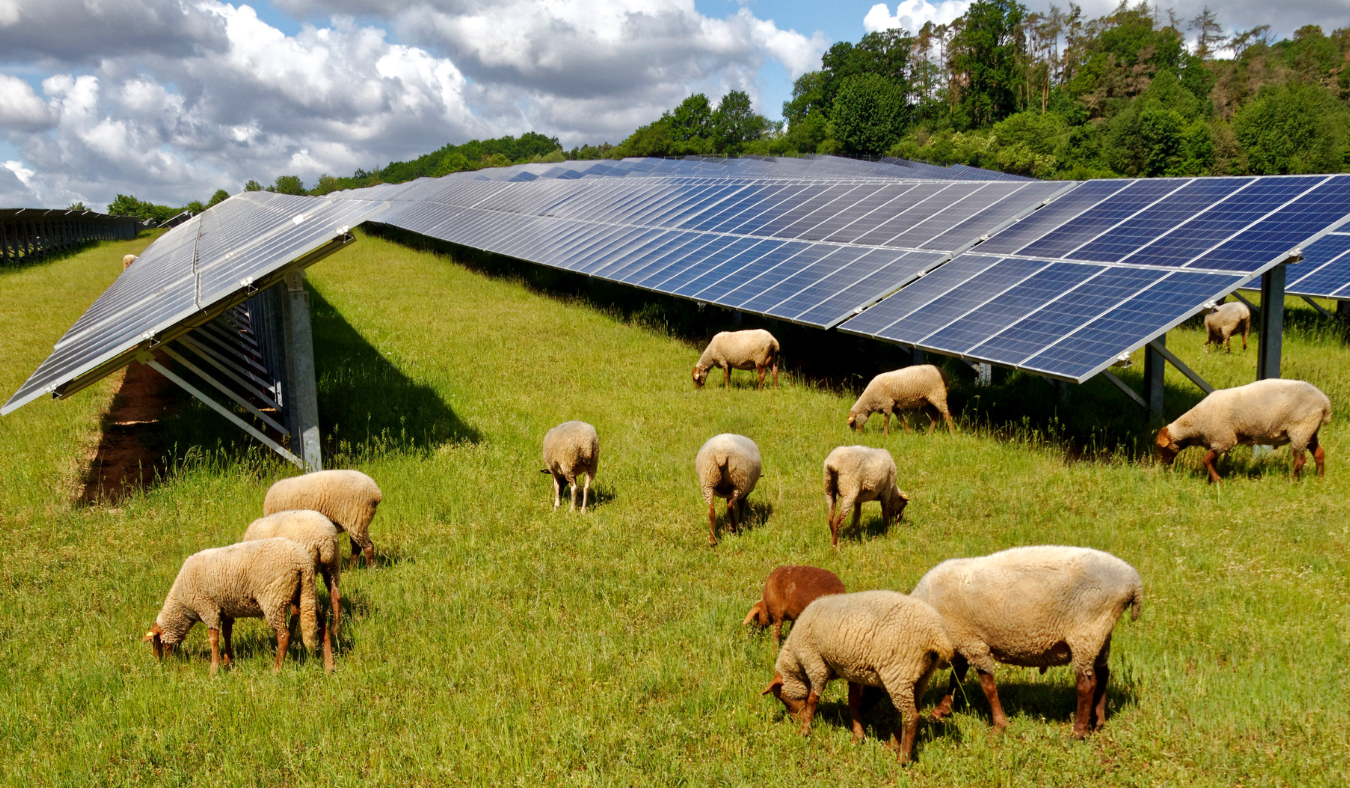Making Energy Work for Rural Oregon
We believe everyone deserves affordable, clean energy produced locally.
THE MAKING ENERGY WORK COALITION
The coalition includes municipalities, nonprofits, independent renewable energy suppliers, Tribes, farmers, ranchers, and state agencies in rural Oregon who are:
Planning and building community-based clean energy projects.
Learning from each other via quarterly workshops, field tours, and information-sharing sessions.
Pooling resources to pilot innovative demonstration projects.
Educating policymakers and funders about clean energy projects and programs.
Spearheading policy initiatives to bring the economic and resilience benefits of clean energy to rural Oregon.
Rural and indigenous communities play a crucial role in the transition to locally produced, clean energy. But in the current rapid transition to a clean energy economy, rural interests are often left out of the conversation.
At Sustainable Northwest, we and our partners help amplify these voices through the Making Energy Work for Rural Oregon (MEW) coalition.
Interested in joining a growing coalition of clean energy leaders across the state? Sign up for monthly newsletters, engaging workshops, webinars, and more!
In 2022, SNW and our partners added a dedicated policy committee to the coalition to advocate for public policies that support locally owned, clean energy projects.
THE MAKING ENERGY WORK POLICY COMMITTEE
The Making Energy Work for Rural Oregon (MEW) Policy Committee includes a diverse group of community energy advocates across the state. We support an equitable transition to a clean energy economy so that rural and indigenous communities can realize greater economic stability, energy independence, and community resilience. We support and coordinate project development, provide technical assistance for resilience planning, and offer financial modeling and fundraising expertise.
We also work on the ground to develop local energy projects to deliver project benefits to our partner communities. Sustainable Northwest focuses on uplifting rural, Tribal, and natural resource-based community voices to ensure these investments are deployed where needed. In addition, we are establishing a newly formed Making Energy Work Policy Steering Committee to identify and make state-wide energy policy recommendations.
Help us remove regulatory energy policies that create barriers for rural Oregon and ease tensions between rural stakeholders and urban centers as climate and economic hardships continue to grow.
-
Policy Members:
Joe Basile, Wallowa Resources (Wallowa County)
Amy Berg Pickett, Sunstone Energy (Deschutes County)
Stu Green, City of Ashland (Jackson County)
Lindsey Hardy, The Environmental Center (Deschutes County)
Meagan Hartman, Wisewood Energy (Benton County)
Ormand Hildebrand, PaTu Wind (Wasco County)
Nicholas Johnson, Textile Exchange (Lake County)
Les Perkins, Farmers Irrigation District (Hood River County)
Jennifer Rouda, 7Skyline / Navajo Power (Clatsop County)
Advisory Members:
Joshua Basofin, Climate Solutions (Multnomah County)
Angela Crowley-Koch, Oregon Solar + Storage Industries Association (OSSIA) (Multnomah County)
Dylan Kruse, Sustainable Northwest (Clackamas County)
Mike McArthur, Community Renewable Energy Association (CREA) (Sherman County)
Shannon Souza, Oregon Coast Energy Alliance Network (OCEAN) / Sol Coast Consulting & Design (Coos County)
POLICY SUCCESS
-
The MEW Policy Committee identified three key policy areas to develop and support for the 2023 legislative session - community energy resilience, development of a state hydrogen economy, and modernization of PURPA Qualifying Facility (“QF”) contracts as our priority initiatives. This work led to the development of three bills introduced in the Oregon legislature this year, in partnership with key community partners and congressional sponsors, to achieve the following:
Providing funding to help all 36 Oregon counties develop an energy resilience strategy
Clearly defining renewable hydrogen in order to help Oregon develop a renewable hydrogen economy
Modernization of PURPA QF contracts for the benefit of community-scale solar energy projects
We are thrilled to announce that the legislature passed bills achieving the first two outcomes above – for community energy resilience and a renewable hydrogen economy – into law
The community energy resilience legislation provides first-of-its-kind funding for all 36 Oregon counties to develop an energy resilience plan. This can include development of microgrids and other improvements to capture federal funds, decrease costs, and improve reliability, which is particularly important to rural communities that face increasing disruptions to the grid from natural disasters such as wildfire. The work to define renewable hydrogen is important to ensure our transition to a clean energy economy is truly clean, utilizing clean power sources for renewable hydrogen. These important milestones could not have been achieved without the unwavering dedication and support of our MEW Policy Committee members, advisors, community partners and funding partners.
And while the efforts to modernize PURPA QF contracts for the benefit of community-scale solar energy projects did not ultimately pass this session, we remain committed to pursuing this important policy initiative with our committee members and partners in the next legislative session and beyond.
We offer our deepest gratitude and appreciation to the partners who’ve made this effort possible, including the Stolte Family Foundation and Climate Solutions. Through your continued support and the dedication of our members and partners, today’s accomplishments are only the beginning of what we will achieve.
-
One of the most significant environmental takeaways from this session was the passage of HB 2021, which will require the state's major utility suppliers to provide 100% clean electricity to customers by 2040 and prohibits new or expanded natural gas-fired power plants in the state. The new law makes Oregon the eighth state to commit to 100% clean electricity, with the most ambitious timeline in the country. Beyond the mandate, HB 2021 also includes a $50 million incentive program to promote energy resilience and small-scale clean energy projects that will help spread the benefits of this transition to rural communities across the state.
In a separate package, The new Rooftop Solar Incentive Fund provides $10 million, which will extend the benefits of solar and storage to residential customers, low and moderate-income customers, and low-income service providers across Oregon.








